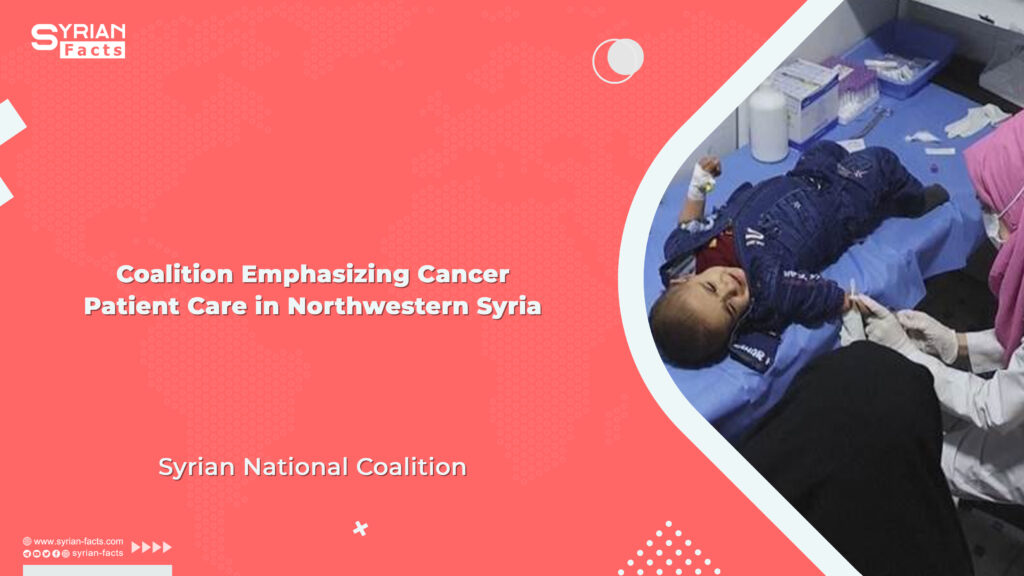The General Assembly of the Syrian Opposition Coalition (SOC) convened its 67th session on Friday in Istanbul to tackle critical issues surrounding the nation’s political landscape, military situation, and the situation in the liberated northwestern Syria.
During the session, SOC President Salem Al-Meslet provided a comprehensive political briefing on matters related to the Syrian file. Attendees received copies of work reports covering the past two months, as well as information on meetings and communications pertaining to Syrian issues, the treatment of cancer patients, the refugee crisis, and the reports of the presidency, representatives, and the General Secretariat.
Key discussions at the General Assembly centered on the latest political developments and the impact of international changes on the Syrian Revolution. Particular attention was given to exploring ways to address these challenges and addressing the concerns of the Syrian people in host countries and liberated areas.
President Al-Meslet shared details of his recent political activities and meetings with international envoys. He emphasized the unwavering support of allies in assisting the Syrian people to realize their aspirations, their rejection of normalization with the Assad regime, and their refusal to contribute to the rebuilding efforts in Syria as long as no progress is made in the political process.
The Vice-Presidents and the Secretary-General also presented their respective briefings, providing reports on their work over the past two months. The Assembly thoroughly reviewed reports from the Syrian Interim Government and the Assistance Coordination Unit, along with the updates from various departments, offices, and representations. Special attention was given to the briefings of the Syrian Negotiations Commission, the Constitutional Committee, and the Syria Recovery Trust Fund.
Badr Jamous, President of the Syrian Negotiations Commission, offered insights into the most significant developments in the political process and the Commission’s interactions with international representatives during the previous period. He emphasized the Commission’s focus on urging increased international efforts to achieve a political transition in accordance with UN resolutions.
During the session, participants expressed concern about the ongoing obstruction of the political process by the Assad regime, its rejection of all initiatives related to Syria, and its continued collaboration with Iranian militias in drug trafficking to neighboring, Arab, and European countries. They also discussed the brutal military approach employed by the Assad regime in dealing with the Syrian people.
Regarding international efforts, the Assembly discussed the United States’ proposed law to prevent normalization with the Assad regime, expand the Caesar Act, and refuse recognition of any government led by war criminal Bashar Al-Assad. Members underscored the significance of promptly approving the US decision to implement these measures.
The Assembly warmly welcomed the United Nations General Assembly’s resolution to establish an independent institution to address the missing persons issue in Syria, emphasizing that the plight of Syrian detainees is non-negotiable. The attendees called upon the international community to make serious efforts to secure their release and protect them from the brutality and criminality of the Assad regime, particularly due to the alarming violations and torture within its prisons.
Furthermore, the Assembly expressed strong support for the joint lawsuit filed by the Netherlands and Canada against the Assad regime at the International Court of Justice, with regard to torture crimes, the use of chemical weapons, arrests, and gross human rights violations. Members rallied behind all effective international endeavors that seek to hold the Assad regime accountable for its numerous war crimes against innocent Syrians.
The humanitarian situation in Syria, particularly in the liberated areas after the Russian veto in the UN Security Council, was a focal point of discussion. Attendees called for urgent measures to bypass the Russian veto and ensure the delivery of necessary humanitarian aid to millions of Syrians.
Addressing the healthcare challenges in liberated areas, the Assembly emphasized the need for an international response to support cancer patients, heart patients, and others who are suffering due to the criminal approach of the Assad regime and its allies. They noted that existing hospitals in these areas cannot adequately treat these medical conditions.
The Assembly also focused on the recent developments in Dara’a province and condemned the ongoing violations by the Assad regime forces, including shelling and attempts to storm towns like Tafas. The members also discussed the Russian jets’ horrific massacre in Jisr al-Shughour, which targeted a popular market and resulted in numerous casualties.
In the context of Syrian refugees, the Assembly stressed the importance of respecting international laws and norms that protect the rights of refugees, such as the right to non-refoulement and non-deportation.
Participants voiced concern over Greece’s approach to asylum seekers, which has tragically led to the drowning of innocent people, including women and children.
The General Assembly collectively reaffirmed that the path to saving Syria and its people lies in the removal of the Assad regime, achieving a political transition in accordance with UN Resolution 2254, and ensuring accountability for war crimes. The attendees firmly believe that progress can only be made in Syria’s interest with the Assad regime no longer in power.









Be the first to write a comment.